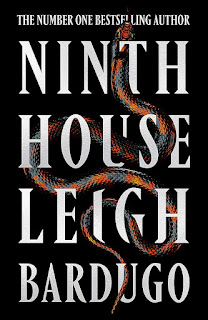"Darrow would have lived in peace, but his enemies brought him war.
The Gold overlords demanded his obedience, hanged his wife, and enslaved his people. But Darrow is determined to fight back. Risking everything to transform himself and breach Gold society, Darrow has battled to survive the cutthroat rivalries that breed Society’s mightiest warriors, climbed the ranks, and waited patiently to unleash the revolution that will tear the hierarchy apart from within.Finally, the time has come.
But devotion to honour and hunger for vengeance run deep on both sides. Darrow and his comrades-in-arms face powerful enemies without scruple or mercy. Among them are some Darrow once considered friends. To win, Darrow will need to inspire those shackled in darkness to break their chains, unmake the world their cruel masters have built, and claim a destiny too long denied—and too glorious to surrender."
A truly brilliant ending to a wonderful series.
Not only is the series very well-written, but it has a lot more complexity than I'd originally expected. Both in the characters, the plot, and in its morality and, personally, I'm a huge fan of complexity.
The other thing that really stands out is the fact that the books are wildly unpredictable without being irritating or disappointing. I'm pretty good at anticipating where a story is going to go, and these books constantly zigged when I expected them to zag. But (and this is a really important note) while the ziggs the book took were surprising, they were always sensible and fit smoothly into the overall narrative and world.
The plot remains true to the direction from Golden Son, which means it’s still done within the large scale genre of Sci-Fi and Space Opera, compared to Red Rising which was Sci-Fi & Dystopia. The pacing of Morning Star is a bit slower this time and I honestly prefer the pacing of Golden Son. However, it’s understandable, after the rollercoaster that happened in Golden Son plus with everything built up from the first book, it’s obvious that there are a lot to settle in the last book to close the story and that results in slower pacing compared to its predecessor.
Darrow and Sevro remain my favourite characters for the whole series, I find their friendship an absolute pleasure to read and it’s really clear how much Brown dives into the theme of friendship and its importance in this book. The wide variety of characters, their development, and their stories are delightful to read. Darrow was 16 years old in Red Rising and he's 23 in Morning Star, the whole story took 7 years and you bet there's a lot of developments happening to all the characters.
However, Brown is not afraid to kill off his characters if necessary and I personally find that a really great trait every story writer should have, not only in books but in all form of medium. But, once again, despite all the fear and pain and heartbreak, Brown proves himself a dab hand at balancing pain with humor creating some truly laugh out loud moments.
The writing remained impeccable since the beginning until the end. Poignant, poetic, dark, full of love, humor, beauty, rage, violence, hatred, etc. These made every scene vivid and relatable plus the epic climax sequences were vivid and dramatic. One of my favourite parts of this trilogy is Brown's focus on morality, consequences and values. What it important to you, how much are you willing to sacrifice for those values, are you willing to save people if it costs you your moral high ground? All of these ideas are navigated with skill and subtly by Brown.
Age Rating 17+ It’s completely geared toward adults and everything in it is written like one, it contained a lot of harsh language, gory scenes, torture, murder and it only gets darker as the series progressed. The story is dark, there are also hints of rape and cannibalism throughout the series.


















